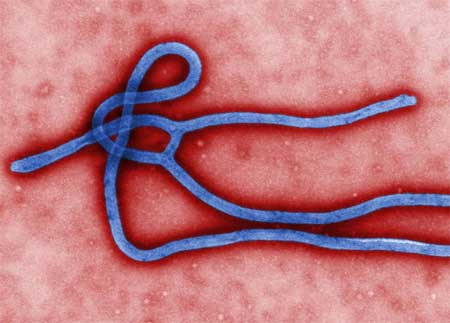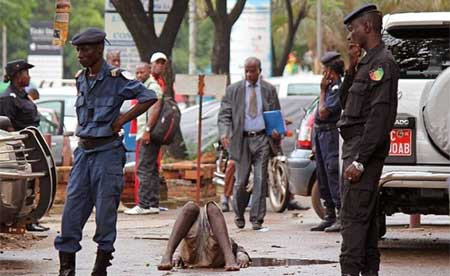Russia warns of risk of Ebola becoming a biological weapon
Concerns that the Ebola virus, which has killed nearly 1,000 people in West Africa in recent months, could be used as a biological weapon are well-founded, Russia's Federal Medical and Biological Agency (FMBA) said.
 |
| The Ebola virus is the most dangerous virus today because there is no vaccine to prevent it and no specific treatment. Photo: Live Science |
"The risk is always there. In fact, the Ebola virus can be used as a spray, which can cause very serious problems," Vladimir Nikiforov, Head of the Department of Infectious Diseases at the FMBA's Institute of Advanced Education, said at a recent press conference in Moscow, Russia.
According to Mr. Nikiforov, it is very difficult to detect attempts to create biological weapons, despite the fact that the Convention on Biological and Toxic Weapons has been in force since 1972.
This expert explained that biological weapons are not like atomic bombs. To create such a bomb, one needs a uranium mine, a nuclear power plant and related processing technologies that are quite cumbersome. However, biological weapons can be made in a small laboratory, which is very easy to disguise.
Nikiforov's views are similar to those of Dr. Peter Walsh of Cambridge University, who warned the British public that a terrorist could use the Ebola virus to create a dirty bomb. The Sun newspaper quoted the British anthropologist-biologist as expressing concern that there would be a horrific massacre "if a group of people found a way to exploit the virus as an ingredient in a bomb that would explode in a densely populated area."
According to Dr Walsh, there are only a few laboratories in the world that have Ebola virus in their possession and these facilities are very heavily guarded. Therefore, we are only concerned about the risk that a terrorist group may try to obtain the deadly virus in West Africa.
Last week, Gennady Onischenko, a former head of Russia's top health agency, said he could not rule out the possibility that the Ebola outbreak in West Africa was highly suspicious and man-made.
At least 961 people have died from the worst Ebola outbreak in four decades. The outbreak began in Guinea in March and has spread to Liberia, Sierra Leone and Nigeria, infecting more than 1,700 people in total. All cases have so far originated in West Africa.
 |
| Guinean police guarded the body of an Ebola victim for hours. For fear of infection, police and people in the area did not dare touch the victim. Photo: AP |
So far, the US has recorded only two infected citizens, medical staff participating in the epidemic in Liberia. They were brought home for treatment and showed signs of improvement after being given an experimental drug. US authorities have also now relaxed safety restrictions on the experimental drug TKM-Ebola, which is expected to be effective in treating patients infected with the deadly virus.
Europe also confirmed its first case of Ebola among its citizens, a Spanish missionary who had been helping hospital patients in Liberia’s capital Monrovia. After testing positive for Ebola, the 75-year-old priest was flown back to his home country from Liberia to be treated in a special plastic isolation cage to prevent the virus from spreading.
According to VTC.new






